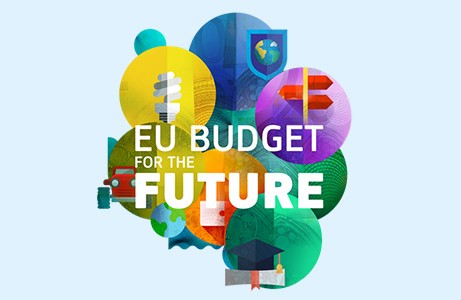
The Commission has today proposed an EU budget of €166.7 billion for 2021, to be complemented by €211 billion in grants and approximately €133 billion in loans under Next Generation EU, the temporary recovery instrument aimed at mobilising investments and kick-starting the European economy. Together, the annual budget and Next Generation EU will mobilise significant investments in 2021 to address the immediate economic and social damage caused by the coronavirus pandemic, kick-start a sustainable recovery and protect and create jobs. The budget is also fully in line with the commitment to invest in the future in order to achieve a greener, more digital and resilient Europe. Once adopted, this will be the first budget under the new 2021-2027 multiannual financial framework and the first annual budget proposed by President von der Leyen's Commission. Commissioner Johannes Hahn responsible for the EU Budget stated: “In these extraordinary times, the European Commission's proposal mobilises unprecedented support. The annual budget 2021 will help hundreds of thousands of people, companies and regions to overcome the crisis and emerge stronger than before. To make it happen, we need an agreement on the long-term budget and Next Generation EU – a deal that will send a signal of confidence throughout Europe.” The draft budget 2021, boosted by Next Generation EU, directs funds to where they can make the greatest difference, in line with the most crucial recovery needs of the EU Member States and our partners around the world. The funding will help rebuild and modernise our Union, by fostering the green and digital transitions, creating jobs and strengthening Europe's role in the world. The budget reflects Europe's priorities, which are relevant to ensure a sustainable recovery. To that end, the Commission is proposing to allocate: The draft budget for 2021 is based on the Commission's proposal for the EU's next long-term budget as put forward on 27 May 2020. Once the European Parliament and the Council agree on the MFF 2021-2027, including Next Generation EU, the Commission will adapt its proposal for the 2021 budget accordingly through an amending letter. It is essential that the draft budget is adopted swiftly so that hundreds of thousands of entrepreneurs, researchers, farmers, and municipalities across Europe can start benefitting from the funds, thus investing in a better future for next generations. Background The draft 2021 EU budget includes expenditure under Next Generation EU that will be financed from borrowing at the capital markets and the expenditure covered by the appropriations under the long-term budget ceilings which are financed from own resources. For the latter, two amounts for each programme are proposed – commitments and payments. "Commitments" refers to the funding that can be agreed in contracts in a given year; "payments" to the money actually paid out. The proposed 2021 EU budget amounts to €166.7 billion in commitments (-9.7% compared to 2020) and €163.5 billion in payments (+0.8% compared to 2020). This is the first budget for EU 27, after the withdrawal of the UK and the end of the transition period. For More Information
Print friendly pdf





